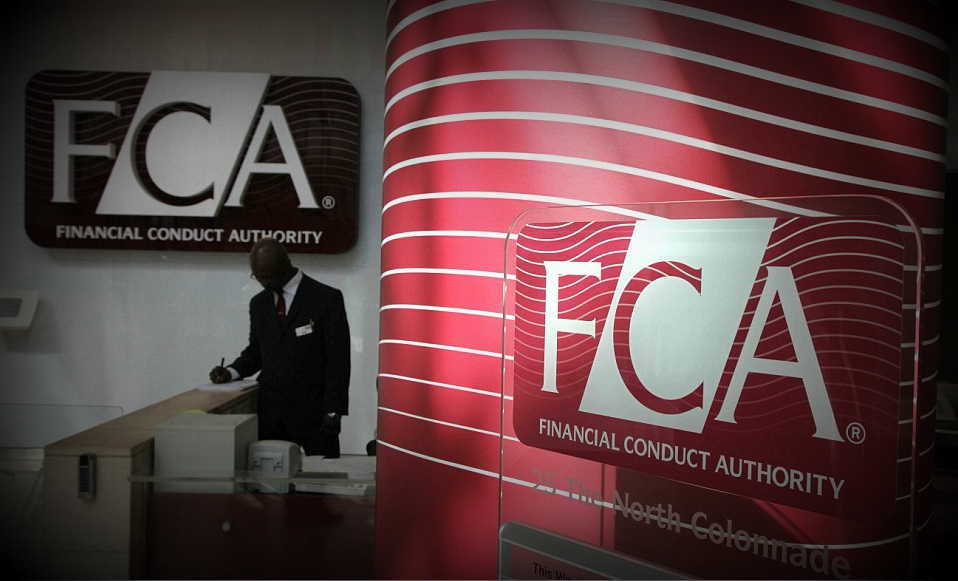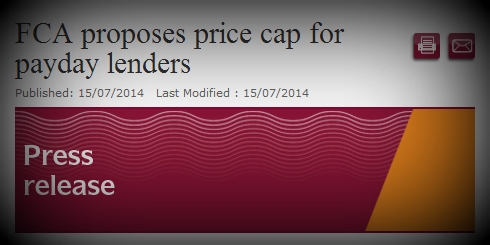

This is a big reason why many moved over to Britain that we covered in more detail Here. There is no language divide and so it will be much easier to work through this location, although the legal restrictions can be confusing. The eventual aim is to get a clearer picture of short term lending from a global perspective, rather than just a local one. Our approach to cover loans in the USA will be larger than that of Poland. Whilst we covered 10 of the most popular lenders there, we will stretch to 20 here. This is due to the industry timeline and the higher number of active providers.
We also wanted to add a few instalment companies (or installment as they spell it) such as Avant Credit and Rise Credit. Picking the actual lenders was quite easy as I am aware of many of the major active firms. Cash America International operates as CashNetUSA, DFC Global has MoneyMart and The Check Cashing Store, whilst Speedy Cash is also well known. Some companies introduced will also have a store presence. When comparing costs, we will look at California since it is the largest state. We will typically look at the price for a 30 day period at 100$ (£62). In California the maximum charge cap is set at 15% (15$/100$).


Although no credit checks are usually taken for prepaid cards, to use the CashPlus borrowing facilities you should expect one. Whilst prepaid card loans aren’t too common, I’m sure that more companies will eventually follow this trend. If you have recently left bankruptcy or are new to the country, but just haven’t been able to find anyone to take you on then you could always try a no frills basic bank account. These products that can be found at most major banks and building societies are generally designed for those who would not qualify for their standard accounts. You aren’t paid interest on your balances and no overdraft facility is available.
Full branch privileges are also unlikely. Qualification is pretty straight forward whereby you just need to show some basic forms of identification such as your driving licence, your passport, a utility bill etc. Once approved, the process should be completed in a good week or so. It is unclear if there are any no credit check basic bank accounts around! Whilst most won’t score the application itself on this, they would likely have to conduct a verification search (for the electoral roll). Once signed up, you should be free to apply for payday loans, or any other loan type. Other than this, CashPlus is the place to head to.


Both of these solutions won’t suit everyone, but they may be the last resort for those with poor credit who are looking to immediately rebuild from scratch. From all of the companies that we have studied, there is a pack of lending brands from the same finance group that can deliver high acceptance payday loans. This includes Tide U Over that is the central brand, with additional trading brands also being setup under the names of Laura Lends and Mr Instant Cash. High approval loans appear likely here since they do state that they are willing to take on those with CCJs that is very rare to see in monthly products.
Laura Lends, Mr Instant Cash and Tide U Over are recommended choices if you have been turned down elsewhere. Tide U Over in particular would be recommended since they allow you to additionally select 12 or 18 months (in the bottom menu bar) and the cash sum over these terms extends to £5000. On their payment calculator for their standard product you can also pick your specific wage day that cuts down on the interest. With the others there is no such calculator and so it is unclear whether savings can be made. Just to add that with Laura Lends you’ll have to add HTTPS to access a secure connection.
A primary reason why high approvals aren’t common across this sector surrounds defaults. This is in light of the lender having limited abilities to recover arrears. Due to the small value of the loan it wouldn’t make much sense for them to head down the legal route that is why many bad debts are quickly sold on to debt collection agencies. Most of the no credit check payday loan headlines that you will see are found on broker sites. Whilst they won’t run a search, the panel that they will match you to through their Pingtree system will do this and so do be wary since these searches can hurt your profile score.


When this ruling is enforced I do wonder how many firms will choose to set the price on the capping line. Many Credit Unions do this, although this is expected since they can charge no more than 26.8% APR. Between now and the end of 2014 my guess is that most companies will continue to charge the rates they do now and then in December there will be a massive influx of changes. This will cause a headache for post updates here. Hopefully, some will make the changes sooner and the purpose of this particular page is to keep track of the pricing changes as we become aware of them.
Payday Lender Price Cap Updates:
= VarioLoans (Ancora Capital Ltd): You can receive plenty of flexibility here including short terms (7 to 35) or longer terms (2, 3 or 4 months). For their shorter selections there was a simple 1% daily charge and no faster funding fee was required. For a weekly £100 loan you now pay £4.55 whilst over 30 days the new charge is £19.48. This equates to a daily rate of approx 0.650%. They have also interestingly updated their instalment loan cost (as they have also done below). Per £300 this was £165, but this has now been lowered to just £118.64.
= WagedayXpress (Ancora Capital Ltd): This product offers terms spanning from 1 to 12 weeks. The £100 charge for 7 days was £10 and over 4 weeks (28 days) this was £25. There are again no fast funding fees. The new charges include £5.25 for 7 days (0.750%) and the price for 28 is amazingly priced at £13.13 (0.469%). For £300 over the maximum term (84 days) the cost was £185.04, but this has also been cut down to £102.38 (0.406%). The rates here would likely be lower than Vario due to the repayments being taken weekly.
Both of these companies were launched by Ancora back in late 2013. They of course started out in 2012 with the RedWallet brand. RedWallet currently holds the same price of £29/£100 that is a complete same day cost. This can be taken over the month only. We will keep an eye out on the cost updates on that side.
More Updates to Follow.


The costs can still be very excessive though and various Payday and Short Term Loan products work out much more affordable that highlights this. The unplanned overdraft charges were picked out from our 20 current accounts that were introduced in this Opening Post. This post covers our current account selection process in detail. The actual product names are headed there and we have also added them below if you mouseover the bank or building society name. When it comes to unauthorised borrowing, any limit would either be accepted at a cost or they would refuse this with an attached unpaid transaction charge. We will cover both pricing instances below.
Details:
We are going to use the example that a sample customer has an approved overdraft limit of £250 that has all been used. A £100 purchase has been made that has took the current account into the red that will last for 30 days. We will attach an approved example (✓) and a refused example (unpaid transaction fee = ✘). This account has been held for a full year and a monthly wage of £1000 is paid in monthly. We are calculating informal charges only and not the costs for the maxed out £250 limit. If an account includes a higher starting limit of say £500 (such as the M&S and Smile products) then we will still score them on the same £250 + £100 purchase. All interest is measured as EAR.
Results:
For our £100 purchase the cost range was £1.15 to £150. We received 19 prices since Barclays couldn’t cater our example. The prices were reasonable up to the 6th position (£6.43). When we moved down to #7 the cost jumped up to £25. Once we reached the #10 spot we saw all charges then head above £50. Your average payday lender would charge around £30/£100. A better way of attacking overdraft charges is to use short term lenders whereby you could pick the specific repayment (for around 1% daily). We have composed the rankings on acceptance, but it is also worth paying attention to those that attach no unpaid transaction fees.
Top 20 Unplanned Overdraft Charges:
1) Post Office: = £1.15
✓: The Post Office takes the top ranking with competitive 14.9% interest on unplanned borrowing that creates a small cost of just £1.15. I have a feeling though that they would commonly just return the item to collect a £15 fee.
✘: £15.
2) M&S: = £1.22
✓: You are started off with a £500 overdraft limit. The first £100 is free and the rest is charged at 15.9%. If you were to surpass £500 they would have a £50 buffer and following this they would just return any payment. Our client was fully protected by the initial limit and so just paid the interest.
✘: No fee.
3) First Direct: = £1.22
✓: A £250 limit is handed on signup that matches our client’s limit. The £100 purchase above this takes on interest at 15.9%. The first informal request in 6 months is free (others are £25). The £10 monthly charge saw a waiver due to £1000 per month being paid in.
✘: No fee.
4) Smile: = £1.43
✓: Smile issues a £500 limit on account opening that provides plenty of protection that our customer remained within. This is a complicated product. If you surpass £500 a £20 annual fee is triggered. Any change to the limit costs £20. If you were at the £500 and borrowed informally then a £20 charge would apply and another £20 would trigger each time this increases. Due to the standard limit, we would only be concerned with interest at 18.9%.
✘: £15.
5) HSBC: = £1.50.
✓: HSBC owns First Direct and so this product shares similarities. This includes the first informal request in 6 months being free. The interest rate is a little higher here though at 19.9%.
✘: No fee.
6) Tesco Bank: £5 + £1.43 = £6.43
✓: A £5 paid fee will be joined by 18.9% interest. This account costs £5 per month, but there is a waiver since only £750 needs to be paid in monthly.
✘: £5.
7) Coventry Building Society: = £25.
✓: This account includes a £250 limit that our client used up. The unauthorised fee was triggered by the £100 purchase at £25.
✘: £8.
8) CitiBank: £25 + £8 + £2.17 = £35.17
✓: There would be a £25 paid fee and this is joined by the £8 month account charge that we couldn’t waiver since at least £1800 each month had to be paid in. Interest would also be charged at 29.8%.
✘: £25.
9) The Co-operative Bank: = £20 + £20 + £1.43 = £41.43
✓: The Co-op is the team behind Smile and so the same characteristics are in place as above, with the critical exception being that the overdraft limit here is £200 (rather than £500). Our client had a £250 limit and so there was already a £20 annual fee for this change. The new £100 purchase also took on a £20 informal charge. There is also 18.9% interest.
✘: £15.
10) Clydesdale Bank: £25 + £25 + £2.18 = £52.18
✓: A £25 usage fee would be joined by a £25 daily paid fee and interest at 29.99%. This is also the case with their sister-brand below.
✘: £15.
11) Yorkshire Bank: = £52.18
✓: Same as above.
✘: £15.
12) Nationwide: = £60
✓: Since the account had been held for a year, we had already received the first 12 months at 0% here. There would be £5 daily fees imposed that would see a cap of £60.
✘: £5.
13) Bank of Scotland: £80 + £6 + £1.51 = £87.51
✓: Now that we have entered informal, we are charged £10 daily fees that are capped at £80. There is also a £6 usage fee and interest at 19.94%. These specs match Lloyds and TSB below (Lloyds owns all). BOS are listed first since we rank alphabetically.
✘: £10.
14) Lloyds Bank: £80 + £6 + £1.51 = £87.51
✓: Same as above.
✘: £10.
15) TSB: = £80 + £6 + £1.51 = £87.51
✓: Same as above.
✘: £10.
16) NatWest: = £90
✓: A £6 daily fee is enforced here that is capped at the figure of £90. The same applies to RBS below that is within the same Group.
✘: £6.
17) RBS: = £90
✓: Same as above.
✘: £6.
18) Halifax: = £100.
✓: Whilst the £50 buffer (when agreed) is notable we had a limit of £250. Now that we have entered unplanned we are hit with £5 daily fees. There is no confirmed figure on the cap, but from running through their site it does appear that they stop at £100.
✘: No fee.
19) Santander: = £150
✓: Daily fees of £6 are charged and there is an overall monthly cap at £150. There is also a £10 paid fee, but this doesn’t matter here as we would have already maxed out £150. Santander only recently updated their costs and so you would expect competitive new rates, but they have performed poorly in each comparison ran here.
✘: £10.
Barclays: = NA
✓: Not available. When using their calculator Emergency Borrowing was only available for overdrafts of £700 and above. They would just return our transaction at £8. Just for reference purposes, Emergency Borrowing has a £5 daily charge capped at £35 over the month.
✘: £8.
Last Updated: September 2014.


Details:
In this example we will assume that £100 has been borrowed for the period of 30 days. This account has been held for a full year that rules out any switch bonuses. Wages are paid in at £1000 each monthly period. Just to expand on our selections here. We have covered most of the major banks and a few building societies (we may add more in time). We ignored any “Basic Banking” accounts that tend to have no borrowing facility attached. We moved on to any free account that offered this. If it so happened that the only option was a paid offering then we would add this so long as it was possible to waiver the charge when you pay X amount of cash in each month.
Results:
The results from these findings saw charges ranging between £0 and £30. This most expensive monthly charge of £30 per £100 is interestingly what a decent Payday Lender would ask for. The high costs were only seen late on though. The 16th price was £8 and the 17th jumped right up to £15. The specific names of each account (with added details) are listed in this Opening Submission. You can also view the name when you mouseover the specific bank or building society title below.
Top 20 Planned Overdraft Charges:
1) Coventry Building Society: = £0.
✓: The first £250 is free that hands The Coventry Building Society with the top ranking.
2) First Direct: = £0.
✓: As above, the first £250 is free. The monthly account charge is £10 (that knocks them down). This doesn’t need to be paid by our borrower since they pay £1000 in and so they get a waiver.
3) M&S: = £0.
✓: The first £100 is free and so a 3rd spot is taken based on this sum being lower than £250.
4) Clydesdale Bank: = £0.78.
✓: You just need to pay a competitive rate of 9.9% here with Clydesdale.
5) Yorkshire Bank: = £0.78.
✓: YB is in the same family as Clydesdale and this product is matched.
6) Post Office: = £1.15.
✓: All that’s required here is interest at 14.9%.
7) Smile: = £1.43.
✓: A £500 limit is granted when you open the account and you only 18.9% on this.
8) The Co-operative Bank: = £1.43.
✓: The Co-op is the team behind Smile and so as expected the same costs apply. The overdraft limit is smaller here though that stands at £200.
9) Tesco Bank: = £1.43.
✓: Our borrower pays in more than £750 and so there is a waiver on the £5 monthly charge. Due to the cost without the waiver, they rank behind The Co-op who they would have ranked above alphabetically. The only cost that needs to be paid on the overdrawn sum is 18.9%.
10) HSBC: = £1.50.
✓: There is just a charge of 19.9% to be paid to the UK’s market leader.
11) Bank of Scotland: = £6 + £1.13 = £7.13.
✓: We start off with the £6 usage fee. With the first £25 being free, just £75 is charged at 19.94%.
12) Lloyds Bank: = £7.13.
✓: This is matched to above (Lloyds of course owns BOS).
13) TSB: = £7.13.
✓: TSB is also matched to BOS and Lloyds above.
14) NatWest: = £6 + £1.50 = £7.50.
✓: A £6 usage fee is joined by interest at 19.89%.
15) RBS: = £7.50.
✓: This cost is matched to NatWest (RBS is their owner).
16) CitiBank: = £8.
✓: The first £500 is free. However, all CitiBank accounts have a monthly price tag. You need to pay in £1800 each month here that our borrower couldn’t meet and so we factored a monthly fee of £8.
17) Nationwide: = £15.
✓: You get 0% for the first 12 months, but our borrower has already been a customer for a full year. This means that the £0.50 daily charge has to be paid.
18) Barclays: = £22.50.
✓: You would pay £0.75 each day with Barclays.
19) Halifax: = £30.
✓: Once you surpass the £50 buffer, you would be charged a pound each day.
20) Santander: = £30.
✓: Santander matches Halifax with the same daily fee.
= Last Updated: September 2014.


Some banks field several accounts, but our focus shifted to free current accounts with an overdraft facility. We skipped any basic bank account since these don’t commonly allow you to borrow. When there was no suitable selection, we went with any package with a monthly fee, so long as you could waiver this when paying a certain level of cash in. On this page we will present our findings listed alphabetically. Rankings will be composed in follow up posts when we will score each based on the charges for planned (Here) and Unplanned Overdrafts. We will also look at the best switching bonuses and those that pay interest on your balances.
Note: The percentages = AER.
Once comparisons have been made we can pick out the UK’s best current account.
1) Bank of Scotland Classic Account = (First £25 at 0%)
Planned: £6 usage fee and 19.94%
Unplanned: £10 buffer | £6 usage | Daily: £5 (>£24.99) and £10 (£25+) | 19.94%
Transactions: £10 (unpaid)
Caps: No more than 8 daily fees
(Notes: Same features as Lloyds below).
2) Barclays Bank Account = (Buffer for first £15)
Planned: Daily: £0.75 (>£1000), £1.50 (>£2000), £3 (£2000+)
Unplanned: £15 buffer | £5 daily (Emergency Borrowing)
Transactions: £8 (unpaid)
Cap: Emergency Borrowing is capped at £35
Notes: This facility was only available for amounts of £700 and above on their overdraft calculator. Without this facility, the items will just be returned.
3) CitiBank Citi Plus Current Account = (Free or £8 monthly*) (First £500 at 0%)
Planned: 16.9%
Unplanned: £10 buffer | 29.8%
Transactions: £25 (paid and unpaid)
Cap: No more than 4 charges
(Notes: Pay in £1800 per month to avoid the £8 fee*. There is a setup and annual renewal fee of 0.5% of the limit for amounts above £500).
4) Clydesdale Bank Current Account Direct
Planned: 9.9%
Unplanned: £25 buffer (see notes) | £25 usage fee and £25 daily | 29.99%
Transactions: £15 (unpaid)
Cap: not disclosed
(Notes: The buffer is assumed to protect you from the £25 usage and the following £25 fees that are charged each day you make another payment in the red. However, they do not clarify this on any of their pages. You need to pay £1000 in each month here. You receive 2% on your balances up to £3000).
5) Coventry Building Society Coventry First = (First £250 at 0%)
Planned: £5 usage fee
Unplanned: £25
Transactions: £8 (unpaid)
Cap: Transaction capping unknown
(Notes: Interest is paid on your balance. This covers 1.1% in the first year and 0.25% in the second. This assumes that you pay £1000 in each month. Otherwise you earn 0.95% and then 0.1%).
6) First Direct 1st Account = (Free or £10 monthly*) (First £250 at 0%)
Planned: 15.9%
Unplanned: £10 buffer | 15.9%
Transactions: £25 (paid)
Cap: No more than £150
(Notes: Pay in £1000 per month to avoid the £10 fee*. The first informal request (£25) in 6 months is free. There is a setup and annual renewal fee of 0.5% of the limit for amounts above £500. Bonus £100 when you switch).
7) Halifax Reward Current Account = (Buffer for first £50)
Planned: Daily: £1 (>£1999.99), £2 (>£2999.99), £3 (+£3000)
Unplanned: £5 daily
Transactions: NA
Cap: No confirmed cap (estimated at £100)
(Notes: The Reward package earns you £5 each month so long as you pay in £750, pay out two direct debits and stay in credit. Bonus £100 handed when you switch).
8) HSBC Bank Account
Planned: 19.9%
Unplanned: £10 buffer | 19.9%
Transactions: £25 (paid)
Cap: No more than £150
(Notes: The first informal request (£25) in 6 months is free. The HSBC Premier is an improved offering that includes the first £500 at 0% on overdrafts. However, a £100,000 income is required here alongside holding another product such as life insurance or a mortgage).
9) Lloyds Bank Classic Account = (First £25 at 0%)
Planned: £6 usage fee and 19.94%
Unplanned: £10 buffer | £6 usage | Daily: £5 (>£24.99) and £10 (£25+) | 19.94%
Transactions: £10 (unpaid)
Caps: No more than 8 daily fees
(Notes: Same features as Bank of Scotland).
10) M&S Current Account = (First £100 at 0%)
Planned: 15.9%
Unplanned: £50 buffer | 15.9%
Transactions: NA
(Notes: You are provided with an automatic £500 overdraft when you join).
11) Nationwide FlexDirect = (First 12 months at 0%)
Planned: £0.50 daily
Unplanned: £10 buffer | £5 daily
Transactions: £5 (unpaid)
Caps: No more than £60 (fees) and £35 (unpaid)
(Notes: The £0.50 charge is still paid within the buffer. FlexDirect offers 5% on your balances up to £2500 in the first 12 months that later drops to 1%).
12) NatWest Select Account = (Buffer for first £10)
Planned: £6 usage fee and 19.89%
Unplanned: £6 daily
Transactions: £6 (unpaid)
Cap: No more than £90 (fees) and £60 (unpaid)
(Notes: This product mirrors the featured RBS account below. The RBS Group of course owns both).
13) Post Office Standard Account
Planned: 14.9%
Unplanned: 14.9%
Transactions: £15 (unpaid)
Cap: Transaction capping unknown
Notes: NA.
14) RBS Select Account = (Buffer for first £10)
Planned: £6 usage fee and 19.89%
Unplanned: £6 daily
Transactions: £6 (unpaid)
Cap: No more than £90 (fees) and £60 (unpaid)
(Notes: The unauthorised fees are triggered when you surpass £6. This isn’t really a buffer though since you can still be hit with an unpaid fee).
15) Santander Everyday Current Account
Planned: £1 daily
Unplanned: £6 daily
Transactions: £10 (paid and unpaid)
Cap: No more than £150
(Notes: Both planned/unplanned essentially have a £12 buffer, but you are still charged for unpaid transactions throughout. You may wish to consider their 123 package that pays cashback and interest at 3% on balances between £3000 and £20,000. We didn’t feature this as there is a £2 monthly price tag. A switch is available that hands you with a 0% overdraft for the first 4 months).
16) Smile Current Account
Planned: 18.9%
Unplanned: £20 usage fee and subsequent £20 fees | 18.9%
Transactions: £15 (unpaid)
Cap: No more than £150 per quarter
(Notes: Most of the features here match the Co-operative product below. This offering differs by not having any minimum income requirements and you are also handed with a larger £500 overdraft. This means that the £20 charges are not imposed until you surpass the £500 limit.
17) Tesco Bank Current Account = (Free or £5 monthly*)
Planned: 18.9%
Unplanned: 18.9%
Transactions: £5 (paid and unpaid)
Cap: No more than £50
(Notes: Pay in £750 per month to avoid the £5 fee*. You earn 3% on your balances up to £3000).
18) The Co-operative Bank Current Account Plus
Planned: 18.9%
Unplanned: £20 usage fee and subsequent £20 fees | 18.9%
Transactions: £15 (unpaid)
Cap: No more than £150 per quarter
(Notes: If you surpass the £200 starting limit, overdrafts will cost £20 every 12 months. Any requests for changes incurs a further £20 charge. This is the same amount that they take for the usage and subsequent increases when you are in the unauthorised zone. There is a waiver if your borrowing lasts 6 consecutive days or less and you haven’t requested an informal overdraft within 366 days. You must pay in £800 per month. You receive £100 and £25 is sent to charity when switching).
19) TSB Classic Plus = (First £25 at 0%)
Planned: £6 usage fee and 19.94%
Unplanned: £10 buffer | £6 usage | Daily: £5 (>£24.99) and £10 (£25+) | 19.94%
Transactions: £10 (unpaid)
Caps: No more than 8 daily fees
(Notes: The TSB Classic Plus also comes with 5% on balances up to £2000 so long as you pay £500 in each month. This is all that differentiates this product to the featured Bank of Scotland and Lloyds listings. Lloyds still part owns TSB).
20) Yorkshire Bank Current Account Direct
Planned: 9.9%
Unplanned: £25 buffer (see notes) | £25 usage fee and £25 daily | 29.99%
Transactions: £15 (unpaid)
Cap: Not disclosed
(Notes: The product details are matched to the Clydesdale Bank above).
Data Correct at August 2014.


Banks in particular have felt the grunt with Lloyds and their Bank of Scotland subsidiary collectively being fined £28 million back in late 2013. The payday loan cap in 2015 was put in writing when a press release was sent out in July 2014 (Link). This sent a shockwave through the industry that is certainly likely to push a large number of firms into closure. The proposals discussed today will come into force from January 2015 onwards and there will be a review in two years. The central rule coming into play is that there will be a daily cost cap at 0.8%. This includes interest and any other fees.
For £100 over 30 days the total cost will be no higher than £24. As seen in our comparison chart, a range of lenders charge £25/£100 monthly and so they will only have to make minor adjustments. There are some firms that we have introduced that ask for much more than this. In some cases we have seen companies asking for more than £60/£100 over the month. Lenders like this won’t stand a chance and will no doubt be unable to adapt. There are some other changes being enforced. This includes default fees being capped at £15 and the 0.8% per day rule will follow for defaults.
This then connects to the total cost cap standing at 100% and so if you borrow £80 then you will never have to pay more than £80 in charges should you default and run into continuous problems. Some interesting facts were presented in this press release. They for instance noted that 1.6 million consumers took out 10 million loans with a total value of £2.5 billion over the 2013 year that highlights the scale of this sector. The discussed caps are targeted at Payday and Short Term loan companies. The Instalment brands won’t be affected much since the daily rates in those sectors are already much lower than 0.8%.
These new changes will help the consumer and put an end to those that charge excessive fees. One thing to point out is that the interest tends to be high to mitigate against the high default rates. This may make it difficult for some brands to continue trading. It does seem apparent as well that payday lenders are being picked on here. There are just as many problems being encountered in other subprime markets. They have also paid no attention to high street banks where some of the unauthorised banking fees are much more excessive than 0.8% per day. Perhaps the focus on the payday sector merely surrounds its vast popularity.


There is one single current account available that is called the Coventry First. You need to deposit £1000 each month to receive their headlined interest rate of 1.1% AER in your first year. Otherwise the rate provided is 0.95%. The first year bonus is 0.85% and so this should follow as 0.25% (when paying £1000 in) or 0.1% on your balances in the following years. For the Coventry Building Society overdraft charges, you are initially handed with £250 interest-free. When this is surpassed there is a £5 monthly usage fee within an agreed limit. For unauthorised borrowing this fee is priced at £25 over the month.
If there are any transactions that are returned here then the unpaid fees come in at £8. This account can be fully managed through www.coventrybuildingsociety.co.uk and their telephone advisors can be reached every day with telephone self-service also being available 24/7. They have developed their products in such a way that it doesn’t matter so much if you have no local branch. The Coventry overdraft charges are quite straight forward and well priced so long as you don’t step into the red. Their first year interest at 1.1% is ok, but Nationwide’s FlexDirect grants 5% in the first 12 months (it then lowers to 1%).


They each include interest-free overdrafts at £500 that is notable, although if you forget to credit your account with a minimum of £1250 over the month then they will quickly remove this facility. Should you go on to borrow a higher amount than £500 then the rate with Plus is 16.9% EAR and 9.9% with Gold. There is a setup and annual renewal fee of 0.5% of the overdraft limit over £500 for the Plus. There is a small £10 buffer and then unarranged interest will trigger at 29.8%. Any paid or unpaid transaction will cost £25, but there is a cap at 4 each period.
You can fully service your account through www.citibank.co.uk. The Citibank overdraft charges headed here may be set well, but you do have to pay for each product unless you meet strict criteria. It is surprising that despite the price tag, there aren’t any noticeable features in place. Neither for instance grants you interest on your balances. This bank is highly established in their home country and they have expanded impressively internationally. Specifically here in the UK, they haven’t emerged to trouble the big names to date. They have 200,000 local customers across their product range. They have just a few UK branches that are strategically placed across London.